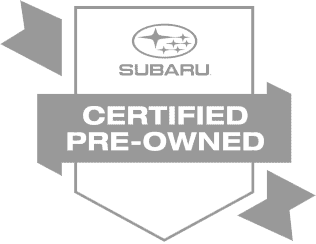

While it's not hard to find a rough road that makes your steering wheel shake in our Northern California foothills, it's usually pretty obvious when you're traveling over a wash pan road or other rough surface. But why would your steering wheel be shaking when cruising down a nice, smooth paved road? Well, cars are complicated works of engineering, so there are many reasons for a shaky steering wheel. Below, we look at six of the more common reasons that our authorized service center has found to be the problem.

6. Bad Wheel Bearings
There's a good chance that you see this reason all over the internet. However, it's just not that common for a vehicle's wheel bearings to go out. Of course, there are exceptions. If you just bounce the right front tire of a pickup truck over the curb every time you do a U-turn, that wheel bearing is much more likely to go bad. If this is the issue, you may notice a shaky steering wheel and the shaking may continue through the rest of the vehicle.
Since the wheel bearings in most vehicles will comfortably outlast the rest of the car, this is not an issue we see that often in our authorized service center. Instead, the problem is more likely due to one of the reasons further up on our list.

5. There's A Problem With The Axles
This is another one that we sometimes see being presented on the internet as a more common issue than it really is. Today, most vehicles are front-wheel drive, and that means the axles are half shafts. When these go bad, you're much more likely to notice a rhythmic ticking when you turn. While you might feel this in your steering wheel, the problem is usually audible long before you start noticing it in the steering wheel or as a shake in the vehicle. However, there are exceptions where a problem with the axles will cause the steering wheel, and even the whole vehicle, to shake. Did you know that your axle is balanced just like your wheels? While an unbalanced axle shaft is more common for rear-wheel drive vehicles, it can cause your steering wheel to shake along with the rest of the vehicle.
4. Tires Flat Spotted
For a long time now, anti-lock brakes have been required equipment on cars, so this is another rare cause for a shaky steering wheel. That's because antilock brakes, when working properly, will prevent your tires from locking up and getting a flat spot. Though, if a brake caliper is stuck and a wheel stops turning while you drive or you have an older vehicle that locked the wheels up during an emergency stop, the tires might have flat spots. As you might suspect, a flat spot on one or more of your tires will cause a vibration in your steering wheel and throughout the rest of the car.

3. Suspension
So, if the bottom half of our list is just about the rare things found on the internet and not typical reasons for a shaky steering wheel, what are the more common problems? Well, the suspension is a more common reason for a shaky steering wheel. This is especially true for vehicles that haven't been brought to an authorized dealership service center for regular maintenance. That's because suspension problems evolve slowly over time, which means you likely won't notice them before the problem is serious enough to make the steering wheel shaky. Things like loose tie rod ends and ball joints will start by making odd, subtle noises when going over bumps. Since these components are responsible for connecting the steering system to the wheels and the wheels to the car, they can cause a variety of issues, including a shaky steering wheel, uneven tire wear, and even a total loss of steering. Fortunately, every visit to an authorized service center like ours includes a multi-point inspection that will catch such problems well before they start shaking things up.
2. Warped Rotors
Regular brake service is part of driving a vehicle, but even a well maintained brake system can fall victim to warped rotors. The brake rotors are those shiny round discs you can probably see when you look through the spaces in your front wheels. The brakes pads are hydraulically clamped onto the rotors at each wheel and stop the vehicle. Sometimes, emergency stops and other demands of our crowded roadways can cause the brake rotors to develop high and low spots. So, when the brake pads are pressed against it, you might feel a shake in the brake pedal and often in the steering wheel as well. If the problem is addressed right away, we may be able to resurface the rotors. Unfortunately, it doesn't take much for a warped rotor to simply need replacement.
1. The Wheels Are Out Of Balance
Have you ever had a ceiling fan that's out of balance and gets wobbly when turned on? Or perhaps you've endured one of those top-loading washing machines that would go nuts when all the jeans ended up on one side. The same principle applies to the wheels on your car. If they're not perfectly balanced, they may begin to shake and bounce around as the wheel spins. Sometimes, unbalanced wheels will only become noticeable at freeway speeds and even then, it may go away if you go a little faster or slower. It doesn't matter at what speed the vehicle is traveling. If you notice a shaky steering wheel, or any other vibrations in your vehicle, it should be looked at by experts right away.
Other Articles You Might Like
Shingle Springs Subaru
4045 Wild Chaparral Dr
Shingle Springs, CA 95682
- Sales: 530-677-8771
- Service: 530-677-8771
- Parts: 530-677-8771








